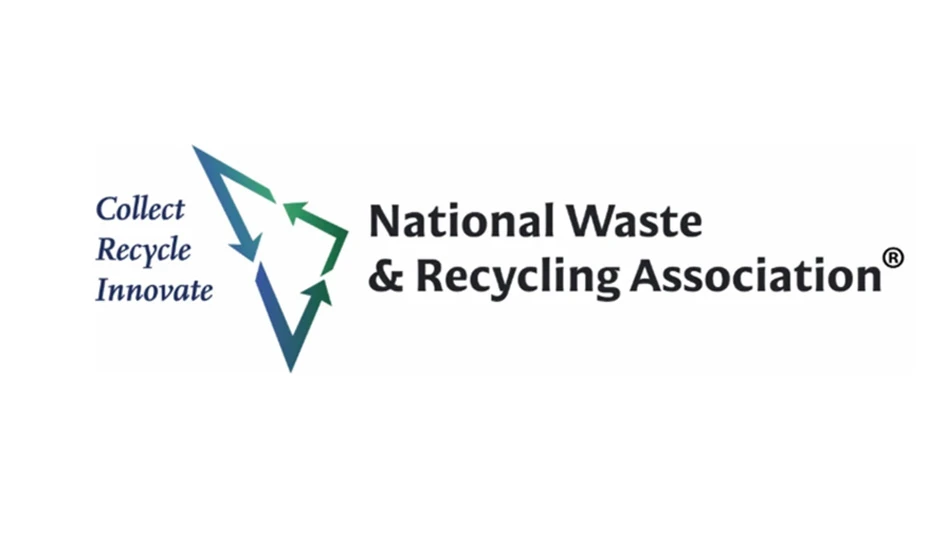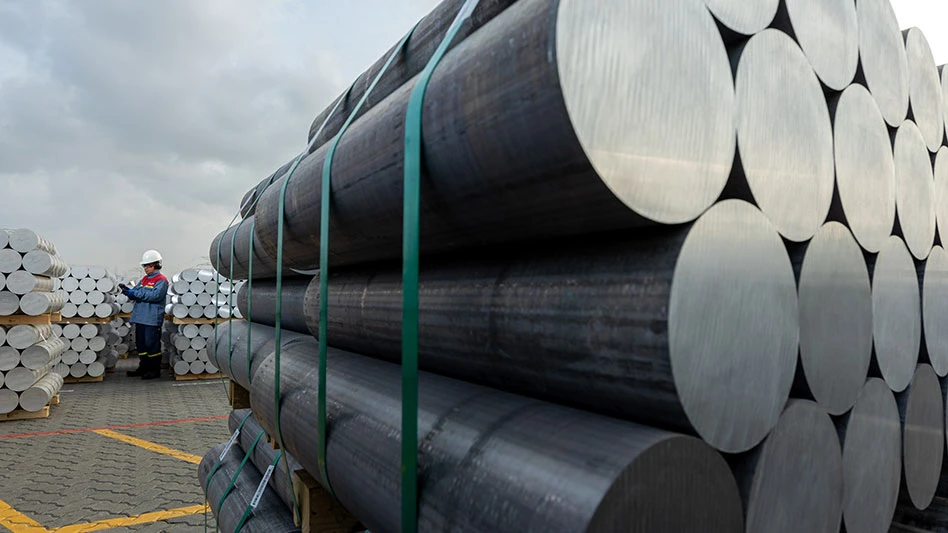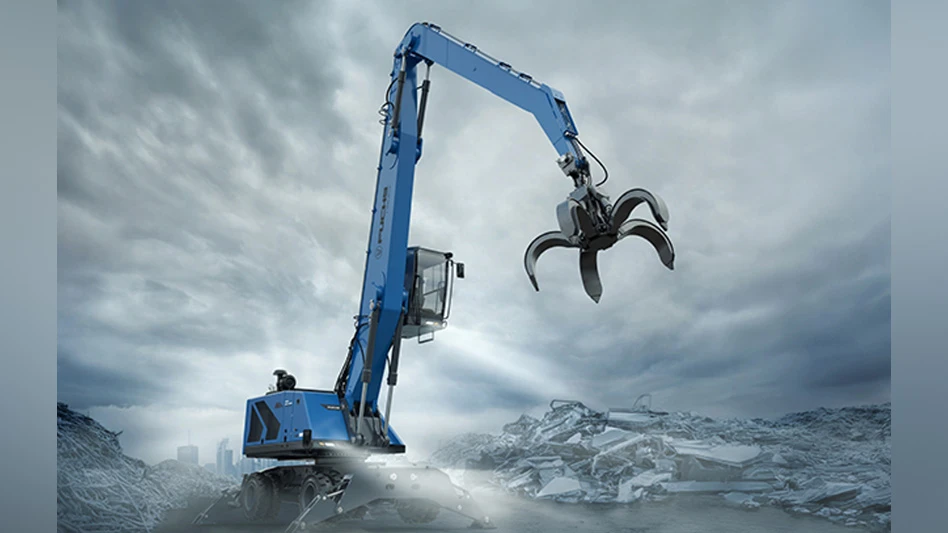
Kalyakan | stock.adobe.com
The office of the U.S. Trade Representative (USTR) announced actions April 17 intended to restore American shipbuilding and address China’s domination of the maritime, logistics and shipbuilding sectors. The actions follow a yearlong Section 301 investigation, which included a two-day public hearing that it convened in March.
Background
The United Steelworkers (USW) led a coalition of labor organizations that filed a Section 301 petition asking the USTR to initiate an investigation into Chinese commercial shipbuilding in March of last year under the administration of former President Joe Biden.
The USTR determined that China’s targeting of the maritime, logistics and shipbuilding sectors for dominance is unreasonable and burdens or restricts U.S. commerce and is therefore actionable under Sections 301(b) and 304(a) of the Trade Act.
Specifically, USTR found China displaces foreign firms, deprives market-oriented businesses and their workers of commercial opportunities and lessens competition, creating dependencies on China, increasing risk and reducing supply chain resilience.
Chinese dominance of the sector burdens or restricts U.S. commerce by undercutting business opportunities for and investments in the U.S. maritime, logistics and shipbuilding sectors; restricting competition and choice; creating economic security risks from dependence and vulnerabilities in sectors critical to the functioning of the U.S. economy; and undermining supply chain resilience, according to the USTR findings.
"Ships and shipping are vital to American economic security and the free flow of commerce," USTR Ambassador Jamieson Greer says. "The Trump administration’s actions will begin to reverse Chinese dominance, address threats to the U.S. supply chain and send a demand signal for U.S.-built ships."
The USTR says its actions “balance the need for action and the importance of limiting disruption for U.S. exporters.”
“Considering the public comments and the advice of the Section 301 Committee, the U.S. Trade Representative has determined not to impose any fee based on fleet composition at this time,” the notice in the Federal Register reads. “The U.S. Trade Representative has determined instead to impose a fee on maritime transport using any Chinese-built vessels. This fee is applied on a nondiscriminatory basis. This fee will be assessed on a per tonnage or per container fee basis, whichever fee is higher.”
The actions and associated fees
The actions will occur in two phases, with no fee applying for the first 180 days.
Following that period, the first phase involves charging owners and operators of China-based vessels on their net tonnage per U.S. voyage, as well as charging operators of Chinese-built ships based on net tonnage or containers at a rate of $50 per net ton, which will increase incrementally over the next three years by $30 per net ton each year.
“If a vessel makes multiple U.S. entries before transiting to a foreign destination, this fee is assessed per rotation or string of U.S. port calls,” according to the notice the USTR filed in the Federal Register. These charges will increase incrementally in subsequent years.
Operators of Chinese-built vessels will be charged after 180 days based on the net tonnage of containers. Effective Oct. 14, the fee will be $120 for each container discharged, increasing to $153 April 17, 2026; $195 April 17, 2027; and $250 April 17, 2028. The fee will be charged up to five times per year, per vessel.
The fees do not apply to certain vessels:
- those with a capacity of equal to or less than 4,000 20-foot equivalent units, 55,000 deadweight tons, or an individual bulk capacity of 80,000 deadweight tons;
- those entering a U.S. port in the continental United States from a voyage of less than 2,000 nautical miles from a foreign port or point;
- U.S.-owned vessels, where the U.S. entity owning the vessel is controlled by U.S. persons and is at least 75 percent beneficially owned by U.S. persons;
- specialized or special purpose-built vessels for the transport of chemical substances in bulk liquid forms; and
- vessels principally identified as “lakers vessels.”
A vessel operator is eligible for a fee remission for up to three years if it orders and takes delivery of a U.S.-built vessel of equivalent size.
The second phase actions will not take place for three years and involve limited restrictions on transporting liquified natural gas (LNG) via foreign vessels to incentivize U.S.-built LNG vessels. USTR says these restrictions will increase incrementally over 22 years.
USTR is seeking public comments on the proposed tariffs on ship-to-shore cranes and other cargo handling equipment, in line with the president’s “Restoring America’s Maritime Dominance” executive order dated April 9 of this year
The USTR is accepting comments from April 17 through May 18 on these proposed tariffs. Parties interested in submitting requests to appear at the hearing on the proposed tariff actions must do so by May 8, including a summary of the testimony. Comments in response to this notice can be submitted or accessed at the USTR comments page.
Industry advocacy
The Recycled Materials Association (ReMA), Washington, was among the parties that testified before the USTR in the matter, with the association’s Vice President of International Trade and Global Affairs Adam Shaffer urging that the initially proposed fee structure be reconsidered as it could have significant adverse impacts on U.S. exporters, including recyclers.
His testimony highlighted that more than 70 percent of U.S. exports of recycled materials transit beyond North America and could be affected by these proposed fees and urged the Trump administration to include a waiver of these fees for vessels that export from the U.S. and help to reduce the U.S. trade deficit.
The American Association of Port Authorities (AAPA), based in Washington, says the USTR's proposal is improved, but challenges remain. United States Trade Representative's (USTR) final action to a Section 301 Investigation that would impose fees on Chinese vessels and new tariffs on cargo-handling equipment (CHE).
“America’s ports appreciate the Trump administration’s willingness to incorporate industry’s concerns in their efforts to counter China’s dominance in the maritime space,” AAPA president and CEO Cary S. Davis says. “This policy will, however, still drive up the cost of shipping, reduce volume through our nation’s trade gateways and make goods, especially automobiles, more expensive [for] everyday American consumers.”
While the AAPA says the final remedy is "significantly improved from the original," it likely will impact specific cargo segments like automobiles severely, as the USTR remedy includes a fee on foreign-built vehicle carriers of $150 for every car it has the capacity to carry.
"This poses new and unique burdens on many ports specializing in roll-on-roll-off [ro-ro] trade business,” AAPA says. “If a typical ro-ro vessel can transport 6,000 cars, the total fee could reach almost $1 million per vessel."
Responding to the potential for an additional 100 percent tax on cargo-handling equipment (CHE), bringing the tariff as high as 270 percent on ship-to-shore cranes, Davis says, “The administration must remember that there are currently no domestic manufacturers of ship-to-shore cranes. Without action from the administration to create an incentive for their production, there won’t be for several years. High tariffs on ship-to-shore cranes, without affordable alternatives from either domestic or allied sources, function as a crippling tax on port development and seriously threaten our nation’s ability to expand cargo movement.”
AAPA says it will submit comments to USTR and encourage ports to contact their Congressional delegations opposing new CHE tariffs and instead champion legislation to create a production tax credit for domestically produced CHE, which would be necessary to incentivize reshoring.
Latest from Recycling Today
- EcoATM announces 7.5 million devices collected in 2025
- Update: NAW secures injunction blocking enforcement of Oregon’s EPR law
- Smurfit Westrock to close paper machine at Quebec mill
- Recycled steel sellers get another winter bump
- Century Aluminum Kentucky smelter site to host data center
- Cleveland-Cliffs loses $1.4B in 2025
- Sims swaps assets in Houston area
- CMI names director of sustainability





